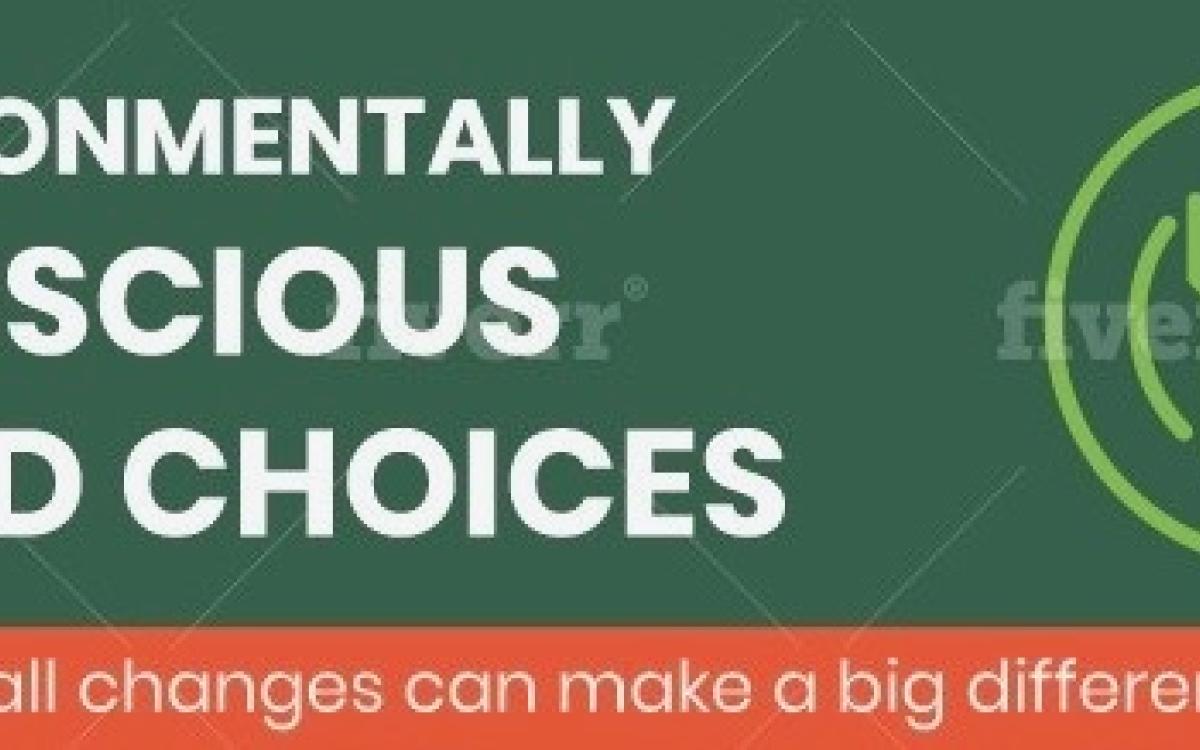At a glance
This project is beginning a carbon-labeling initiative at the University of Washington which would bring awareness to the… Read full summary
- Funding received
- 2019-2020
- Mini
- Awarded
- $140
- Funding partners
-
- Services and Activities Fee (SAF)
This project is beginning a carbon-labeling initiative at the University of Washington which would bring awareness to the campus community about the environmental impacts associated with the food agriculture business and allow for people to make more environmentally conscious decisions with their food consumption habits. We are doing this by displaying informative posters on campus food stores and dining halls with an estimated amount of CO2 emissions and water intake it takes to produce particular food products. With this information available, we could allow the community to find more ways in their day-to-day life to make more environmentally sensitive decisions and learn to leverage our power as consumers to show support for sustainable, less carbon-intensive practices. These posters will be printed from a company (Greener Printer) that prints with 100% recycled material and works with CarbonFund.org to offset their carbon emissions from shipping.
Small Project SEED Grant
Proposal
The goal for this project is to begin a carbon-labeling initiative at the University of Washington which would bring awareness to the campus community about the environmental impacts associated with the food agriculture business and allow for people to make more environmentally conscious decisions with their food consumption habits. The Mini-Grant Seed Fund would provide money to make brochures and posters to handout and display throughout campus food stores and dining halls with an estimated amount of CO2 emissions and water intake it takes to produce particular food products. These brochures and posters will also be printed from a company (GrinterPrinter) that prints with 100% recycled material and works with CarbonFund.org to offset their carbon emissions from shipping. With this information available, we could allow the community to find more ways in their day-to-day life to make more environmentally sensitive decisions and learn to leverage our power as consumers to show support for sustainable, less carbon-intensive practices.
This idea of carbon-labeling was brought to public eye mostly by a law school professor at Vanderbilt named Michael Vandenbergh. His research shows that consumers greatly underestimate that amount of emissions that comes from food. For example, in one study conducted people were asked to estimate the energy use and greenhouse gas emissions of different food products in comparison to a lightbulb. The study found that people consistently underestimated food impacts on emissions. Carbon-labeling could help correct these misconceptions and this is critical to creating more productive individual green action. Significantly, Californians use 1500 gallons of water per person per day and almost half is associated with their consumption of meat and dairy products. And, animal agriculture is responsible for 18 percent of greenhouse gas emissions, which is more than the combined global exhaust from all transportation. If people had more awareness of their carbon footprint with they eat meat and dairy, I believe many people would make an effort to consume less in the hope to lower their footprint. The United Nations University released a report stressing the importance of switching to a more plant based, less carbon intensive diet and quoted from the World Wildlife Foundation’s sustainable food policy officer- Bridget Alarcon- who claims, “Our LiveWell project has shown we can cut a quarter of our climate emissions from the European food supply chain by eating more pulses, fruit and vegetables and by reducing our meat consumption. National governments should improve food education to encourage healthy eating habits and environmental sustainability as a first step.” However, if we start the charge for carbon-labeling here at the University of Washington, we do not need to wait for our National Government to educate and spread this awareness for us. As a powerful research university with high driven students, I believe we can make powerful change within this community now.
If response to the carbon labeling posters and brochures are positive, a long-term goal would be to expand our outreach by creating an RSO dedicated to promoting more official carbon-labeling initiatives within the campus and the Seattle area. To gage the feedback and responses from our posters and brochures, we will provide a scannable QR code that will reference people to a quick survey where members of the community can provide us feedback to the carbon-labeling information.
The group working to jumpstart this project will be assisted by Professor Jessica Holmes who works within the English Department. She will be a vital tool helping us determine the rhetoric that is powerful for people to receive from our brochures and posters. In addition, she is extremely knowledgeable in the topic of Environment Humanities so she has experience and passion for sustainable education. She supports our group, Zach Murphy, Chris Olsen and Denise Devlyn to make this project possible. Zach and Chris are students within the Civil Engineering school so they have practice planning and creating projects and Denise is a student within the School of Oceanography and has knowledge of the effects of CO2 of our environment. To help create the brochure, Dustin Mara, a current graphic design student, has agreed to work with us to design brochures and posters. Our plan is to finalize our outreach materials and have them ready by the start of the 2019-2020 school year so we can start the new school year with the project set into place.
Timeline
- Finalize Research for Project...…..…………………………………………………...November 2019
- Create Posters and Brochures………………………………………………………December 2019
- Print & Administer Brochures and Posters…………………………………………January 2019
Budget
- 50 Posters……………………………………………………………………………………$120
- 500 Brochures……………………………………………………………………………….$350
- Shipping…………………………….………………………………………………………...$30
TOTAL: $500
Denise Devlyn
Project lead
- ddevlyn@uw.edu
- Affiliation
- Student
Jessica Holmes
Team member
- holmes07@uw.edu
- Affiliation
- Faculty
